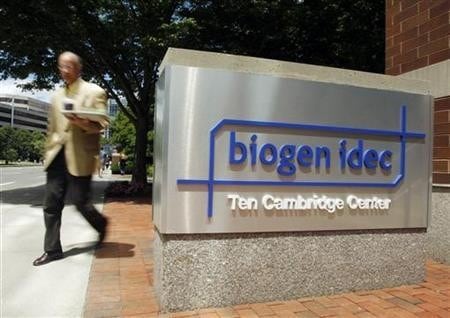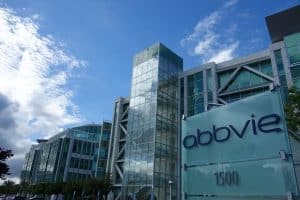
Amicus links with Biogen Idec
pharmafile | September 12, 2013 | News story | Research and Development, Sales and Marketing | Amicus, Biogen IDEC, Parkinson's
Amicus Therapeutics and Biogen Idec have signed a collaboration agreement which will see them look for novel small molecules for the treatment of Parkinson’s disease.
Their starting point is the belief that increasing the activity of the lysosomal enzyme glucocerobrosidase (GCase) in the brain, may put right various problems that bedevil sufferers from the debilitating condition.
Inherited mutations in the GBA1 gene, which encodes the GCase enzyme, are seen as the most common genetic risk factor for Parkinson’s.
Thus, the link between GCase deficiency and alpha-synuclein accumulation seems strong, and there is a school of scientific thought which suggests that improvements to the lysosomal targeting of GCase and an increase in enzyme activity may have some merit for patients.
“Amicus has been a pioneer in the discovery of novel small molecules that increase GCase activity in the brain, and we look forward to working together to discover potential treatments,” said Tim Harris, Biogen’s senior vice president of translational medicine.
Biogen has made it a mission to look for progress in this vexed area of medicine while Amicus is a specialist in developing first-in-class treatments for genetic diseases – in particular those where lysosomal storage is a factor.
The company’s lead programmes include small molecule pharmacological chaperones migalastat HCl as monotherapy and in combination with enzyme replacement therapy (ERT) for Fabry disease – and AT2220 (duvoglustat HCl) with ERT for Pompe disease.
The Parkinson’s arrangement with Biogen will see both companies working on molecules which target the GCase enzyme, which will then be developed by Biogen – who will also be solely responsible for finding the money for all activities from lab to market.
Amicus will receive money for all its staff working full-time on the project, and is in line for milestone payments plus what it calls ‘modest’ royalties on global net sales.
“We believe that this collaboration is an important step forward in validating the potential to address neurodegenerative diseases by increasing relevant enzyme activity in the brain,” said John Crowley, Amicus chairman.
However, it is a therapy area littered with disappointment for pharma: Phytopharm was rocked in February by the failure of one of its most promising drugs in a Phase II trial in Parkinson’s disease.
Cogane ‘had no beneficial effects’ on patients’ symptoms on both the primary and secondary endpoints in the CONFIDENT-PD study.
And GlaxoSmithKline terminated its agreement with Impax Pharmaceuticals to develop an investigational Parkinson’s drug in April.
The extended-release capsule formulation of carbidopa-levodopa is intended for the symptomatic treatment of adults with idiopathic Parkinson’s, but GSK tired of delays in regulatory approval and launch dates in countries where it had rights.
IPX066, known as Rytary in the US, is not approved anywhere in the world.
Meanwhile, Biogen has had a busy summer in corporate terms, this week announcing another deal – worth a potential $300 million – with Isis Pharmaceuticals to bolster its neurology pipeline using antisense technology.
Adam Hill
Related Content

gaitQ awarded NIHR grant for Parkinson’s wearable tech
The UK’s National Institute for Health Research (NIHR) has awarded a £135,000 grant to gaitQ, …

Newron and Zambon to collaborate on Parkinson’s dyskinesia drug trial
Newron Pharmaceuticals and its partner Zambon have announced an agreement for a potentially pivotal study …

AbbVie funds Mitokinin’s Parkinson’s research with option to buy
AbbVie has landed an option to buy neurodegenerative disease-focused biotech Mitokinin following completion of investigational …






